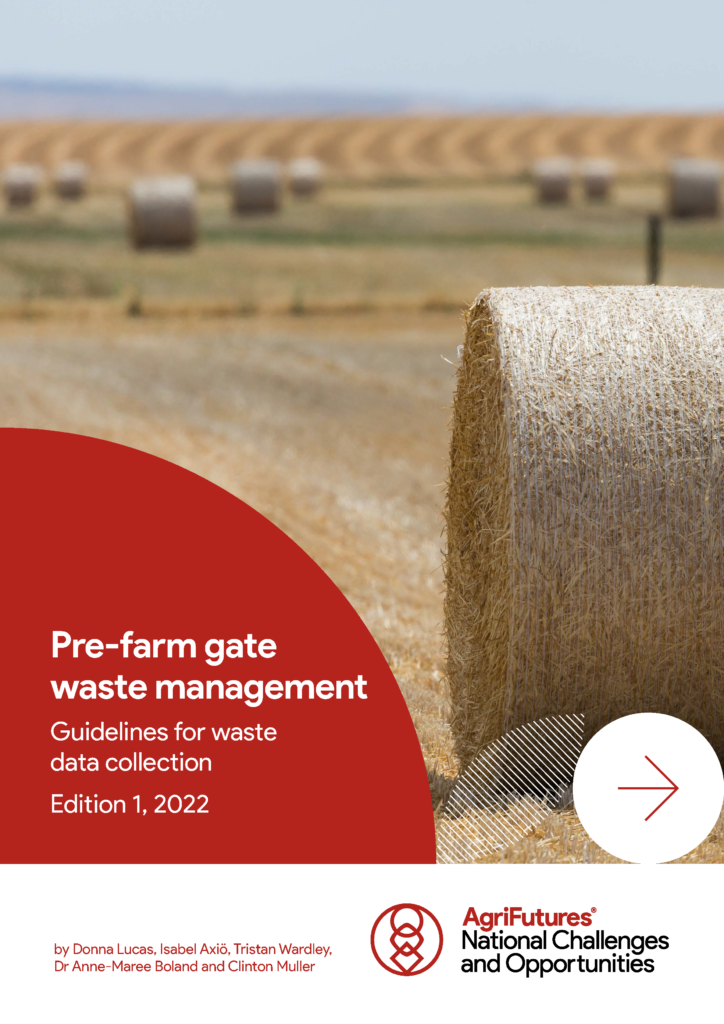Australia’s agriculture, fisheries and forestry sector is making inroads to reduce its waste footprint and align with Australia’s National Waste Policy. Investment in a range of projects as part of AgriFutures Australia’s Pre-Farm Gate Waste Program has delivered insight to inform strategies and investment across rural industries, and set a baseline for future data collection to support waste management activities.
The data collection guidelines outlined in this report are among the outcomes of the first project of its type focused on collecting data on pre-farm gate organic, workshop and plastic waste. The guidelines were used to estimate the volume of pre-farm gate waste generated across Australia in 2020-21 – 9.8 million tonnes, as detailed in the complementary Baseline waste data for the agriculture, fisheries and forestry sector report – and can be used by the industries to consistently and comprehensively collect and report on waste into the future.
The guidelines define the types of waste materials generated pre-farm gate, detail methods for potential national collection of waste data, establish a method for data analysis and extrapolation and outline considerations related to a national data collection approach. The guidelines are expected to be updated and improved over time.
The collection of baseline data on pre-farm gate waste in Australia will better inform management practices, policies and investment. Extensive engagement throughout the project, including interviews, workshops and meetings, highlighted a desire within rural industries to improve waste and resource management, and industry support to facilitate this.
Importantly, rural industries that are setting waste reduction targets or considering waste management in their sustainability frameworks can use these guidelines – and the data collected – to track progress against targets. It is recommended users consider these guidelines in conjunction with the Agriculture, Fisheries and Forestry National Waste and Resource Recovery Roadmap.
Collaboration across industries will be key to addressing waste generation hot spots, particularly where large volumes of material of similar composition can be recovered and recycled together. Further, industry action needs to be complemented by the supply chain to identify novel solutions to the waste challenge. The guidelines outlined here support the growing appetite for improvement in waste and resource management, and enable ongoing data collection to address gaps in baseline data.





